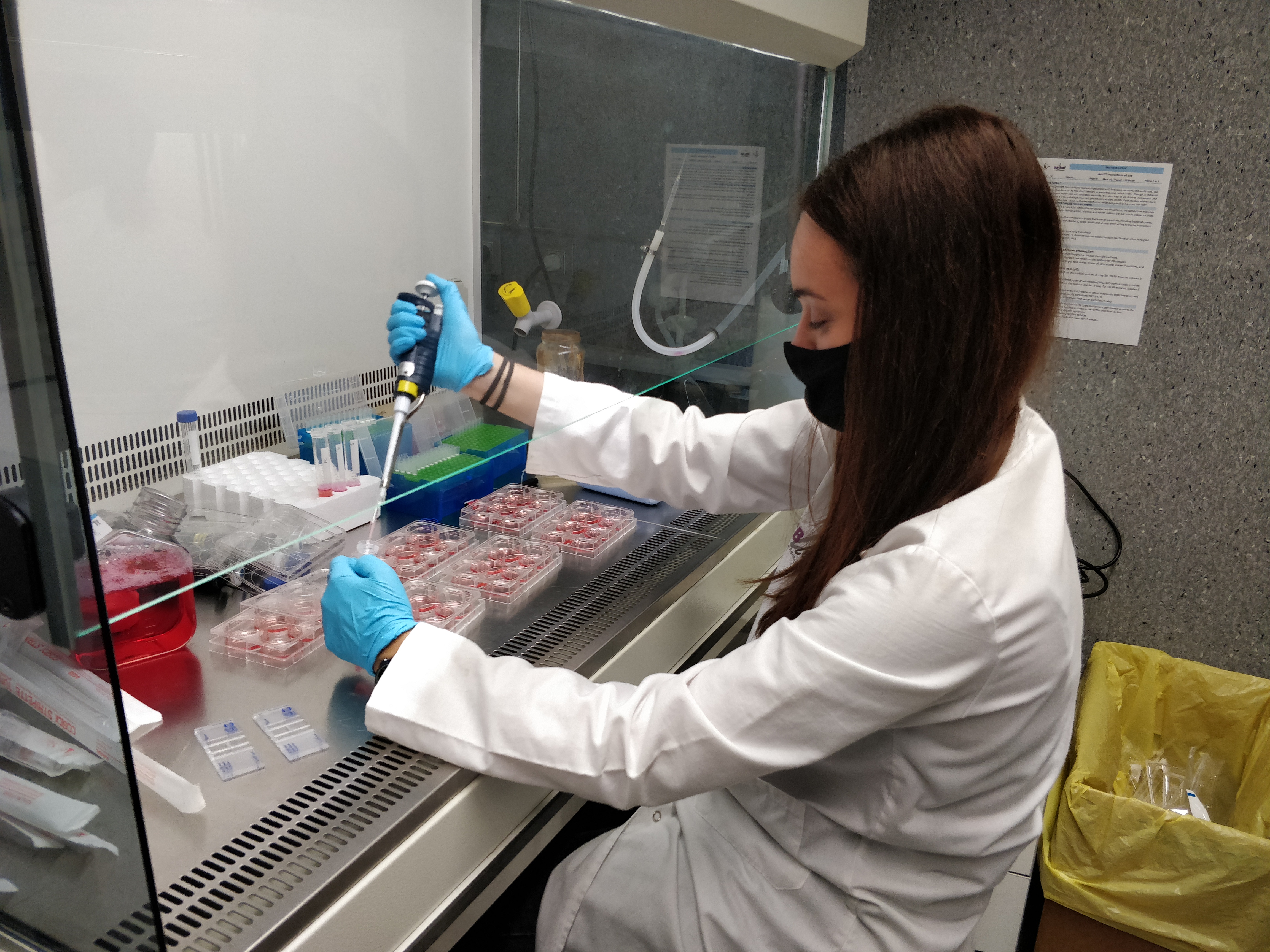Described the function of the EndoG protein, which is key to cell proliferation and the control of oxygen free radicals
Research conducted by professionals from the Cell signalling and apoptosis group at IRBLleida and the UdL
Researchers from Lleida have discovered the involvement of the mitochondrial protein EndoG in the regulation of cell proliferation and its importance for the correct development of the embryo through the control of oxygen free radicals. This discovery also suggests the possible impact of EndoG on processes such as cancer. The finding was recently published in the journal Redox Biology.
The research has been carried out by professionals from the Cell signalling and apoptosis group at the Institute for Research in Biomedicine of Lleida (IRBLleida) and the University of Lleida (UdL), with the collaboration of researchers from the Oncological Pathology group. The head of the Cell signalling and apoptosis group and professor at the UdL, Daniel Sanchis, points out that this research, which has been carried out using rodent and human cell culture models and also with mice, opens up a way to continue researching processes where cell proliferation and oxidative stress have a potential clinical impact such as cancer and some degenerative diseases.
In addition to the research staff in Lleida, professional researchers from the Institute for Research in Biomedicine (IRB Barcelona), the Barcelona Institute of Science and Technology (BIST), the Faculty of Biology of the University of Barcelona, the Andalusian Centre for Developmental Biology at the University Pablo de Olavide in Seville, the Centre for Biomedical Research in Cancer Networks (CIBERONC) and the Centre for Biomedical Research in Networks for Diabetes and Associated Metabolic Diseases (CIBERDEM) have also participated in the study.
The research has been financed thanks to grants from the Ministry of Science and Innovation (SAF2013-44942-R, PID2019-104509RB-I00 and SAF2016-80157-R), La Marató de TV3 Foundation (20153810), the Generalitat de Catalunya's AGAUR agency (2014-SGR-1609) and grants from the University of Lleida and the Diputació de Lleida.
Reference article:
Blasco N, Beà A, Barés G, Girón C, Navaridas R, Irazoki A, López-Lluch G, Zorzano A, Dolcet X, Llovera M, Sanchis D. Involvement of the mitochondrial nuclease EndoG in the regulation of cell proliferation through the control of reactive oxygen species. Redox Biol. 2020 Sep 24;37:101736. doi: 10.1016/j.redox.2020.101736. Epub ahead of print. PMID: 33032073.
IRBLleida belongs to the Institution of Research Centres in Catalonia (iCERCA), which is organised according to a model of good governance and operation that ensures the efficiency, management flexibility, attraction and promotion of talent, strategic planning and executive capacity of the research centres in Catalonia.

The researcher Aida Beà has participated in the study






